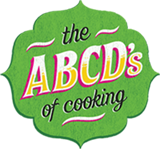Students, when given an assignment to write an essay, get very frustrated thinking that they will have to compose something. In reality, there is nothing wrong with writing an essay, as according to the rules it is written in free form and has no serious structure requirements.
An essay is a short essay, the composition of which depends only on the author.
If you pay attention to the style of essays by different authors, some works are read in the same breath, while others are boring and uninteresting. Of course, each of us has a different technique of writing, and not everyone has literary talent, but much depends on the attitude of the author to the topic of the work. On how enthusiastically the student will approach the creative process, which is how you can call writing an essay, depends on how vividly the topic will be disclosed. The originality of the work is also influenced by the fact what kind and form of essay will be chosen.
Since essays do not have a strict form, there is no clear classification of types, because of which there are several options.
The smallest classification is represented by two items: subjective and objective types. The task of the first boils down to revealing the personality of the author, and the second - the idea or the subject of the description.
Based on the content, there are spiritual-religious, historical, literary-critical, philosophical, artistic or artistic-publicistic types of essays.
If we talk about the literary form, there are such types of essays as notes, lyrical miniatures, letters, reviews, diary.
Putting an emphasis on composition, there are analytical, critical, descriptive, narrative, and reflective types of essays.
There are also other types: character analysis, literary analysis, argumentative, descriptive, defining, causal, and comparative essays.
As you can see, it is better to choose the most convenient and appropriate type for writing a paper. So, for example, stopping at the comparative type of essay will have to focus on the similarities and differences, both between people and between ideas or objects, with the argumentative - to present and prove assumptions, and with the descriptive - to convey the main characteristics of the object, whether it is the appearance, smell, texture, etc. If one needs to write a literature essay, it is logical to opt for a literary-critical essay, a review, a literary analysis, or a character analysis. Again, if a person likes to reflect, you can choose a philosophical essay, if you want to make the essay more frank - choose the form of a letter, diary or notes, give preference to a role essay in order to put yourself in someone's place or describe the reaction to a certain situation.
Whatever classifications of essays there are, it is important to choose the most relevant and appropriate type to reflect the topic of the essay, then the content will be all right, too. The most important thing is to most clearly express a point of view on the problem, and the right kind of essay will only contribute to this goal.
It is also a common method of organizing and discussing ideas. And it explores how this event or situation occurred ("cause") and what happens because of this event or situation ("consequence"). In other words, it explores the "why" or "how" of situations.
Some Types of Causes and Consequences Essays
In anticipation of some cause and effect essay structure, please note. At a basic level, these essays come in three types, namely:
- Effect-oriented method. Here, the analysis focuses on one or more of the effects that the event had.
- The cause-oriented type of method. Here the analysis focuses on the various causes that lead to the event.
Causes and effects The result-oriented type of method
Here the analysis focuses on both causes and effects. Also, by cause, why something happened and the effects it had.
Some goals of the cause and effect essay are.
In anticipation of some cause and effect essay examples, please pay attention. Some of the goals of this essay are:
- To develop the student's skills in in-depth analysis of events.
- Also to test students' abilities. To present analytical and problem solving skills.
- To bring in a variety of topics that affect our lives and society.























